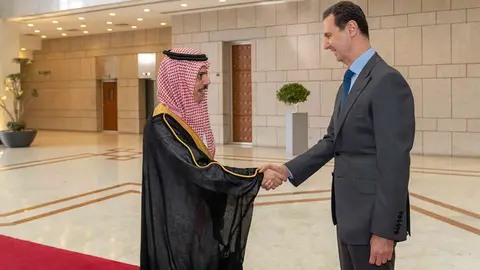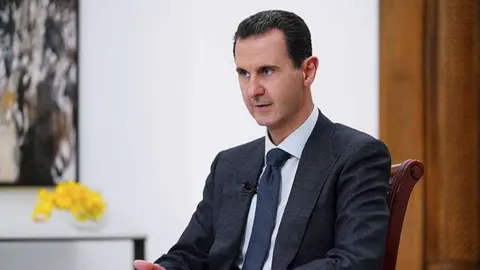Bashar al-Assad emerges from diplomatic isolation on his trip to China

On board an Air China plane, al-Assad arrived in the eastern Chinese city of Hangzhou amid thick fog that, according to Chinese state media, "added to the atmosphere of mystery". Since diplomatic relations between the two nations were established in 1956, this was the first trip by a Syrian head of state to China.
It is his most recent effort to end more than a decade of diplomatic isolation as a result of Western sanctions. Before leading a delegation to meetings in several Chinese cities, al-Assad will attend the opening ceremony of the Asian Games on Saturday.
In 2004, Assad made his last trip to China for talks with then President Hu Jintao. Despite Assad's international isolation following his crackdown on anti-government protests that began in 2011, resulting in a civil war that killed more than 500,000 people, displaced millions more and damaged Syria's infrastructure and industry, China and Syria's allies such as Russia and Iran maintained those ties.

In May 2022, Syria was welcomed back into the Arab League and joined China's Belt and Road Initiative. Assad expects to receive financial assistance to address the problems of his crippled economy and the lack of results so far from his attempts to improve relations with Arab countries. But any Chinese or other investment in Syria risks being entangled with US Caesar Act 2020 sanctions that can freeze the assets of anyone doing business with Syria.
A leader like Assad came as no surprise to Alfred Wu, associate professor at the Lee School of Public Policy, who noted in ArabNews that Xi Jinping seeks to openly challenge the United States in his third term.

He does not mind that this further marginalises China in the global community. China is expanding its engagement in the Middle East as it visits. Sino-Iranian relations were repaired this year thanks to a deal brokered by Beijing. At a summit in Saudi Arabia in May, Syria was granted access to rejoin the Arab community, ending more than ten years of isolation in the region.
Analysts predict that funding for reconstruction will be a major topic of discussion during Assad's visit to China. As Lina Khatib, director of the Middle East Institute at SOAS University of London, said, 'Assad intends his trip to China to convey a sense of international legitimacy for his regime and paint a picture of imminent Chinese support for Syria's reconstruction'.

In January 2022, Syria joined China's massive Belt and Road trade and infrastructure initiative. According to Haid of the Chatham House think tank in London, Assad's meeting with Xi Jinping is expected to "revolve around persuading China to help Syria's economic recovery". In 2017, China pledged to invest $2bn in Syria, but, according to Haid, the money "has yet to materialise".










